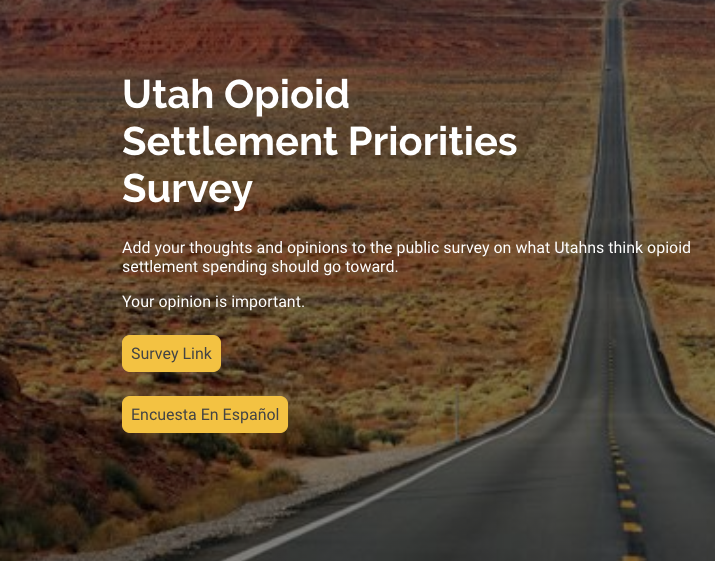There is ongoing litigation due to the opioid crisis that involves multiple lawsuits against manufacturers and distributors of narcotics. Carbon County Commissioner Casey Hopes explained that Carbon County, along with many other counties within the state, are in litigation with all of them.
These lawsuits began when it was discovered that some manufacturers and distributors overly prescribe and push narcotics. Knowing that they are highly addictive, it was stressed that something needed to happen to implement change.
So far, two possible settlements have been discussed between the commissioners, with the first presented at the final commission meeting of 2021. With these lawsuits and possible settlements, the topic of how the funds will be allocated has been brought the forefront of many minds.
A survey was created by the state of Utah and the Utah Opioid Task Force’s Opioid Settlement Advisory Committee to receive input from community members on what they feel is working and what is not. Members of the community can also voice how they think the money should be directed, who to direct it to, and what services should be created and how it may benefit families that are affected.
Commissioner Hopes stated that there are possibilities, or opportunities, for Four Corners to receive some of the funding, as they are the mental health experts. Other options could be the Southeast Utah Health Department or nonprofit organizations such as USARA, which both have proven results.
Commissioner Hopes explained that Carbon County was the highest in the nation per capita for opioid abuse, making the county a large focus, and they were approached by multiple firms.
If the funds do come through, it will happen in an 18-year payout, meaning that the amount Carbon County is awarded would be paid out over 18 years. This process began as early as 2018 and there is still work to be done, including getting each county that is filing to settle.
Commissioner Hopes stated that his biggest goal with these lawsuits and the funding is to have treatment for those families and individuals that are affected, but equally as important is that the prescribing of opioids changes. He stated that the narcotics are still needed to manage pain, but he has already noticed that doctors are working with smaller supplies and implementing other needed changes.
Access to the survey can be found here.

